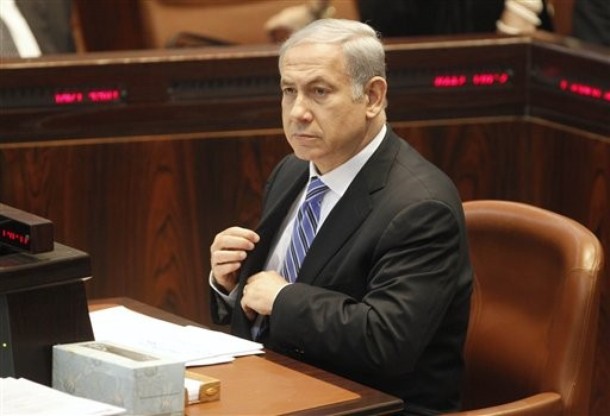Is there any hope for a permanent peace in the Middle East when Israel believes the only way to deal with the Palestinians is akin to “cutting the grass,” a bizarre belief that now governs Israeli foreign policy as the New York Times recently reported
,
The operative metaphor is often described as “cutting the grass,” meaning a task that must be performed regularly and has no end. There is no solution to security challenges, officials here say, only delays and deterrence…That is why frequent raids in the West Bank and surveillance flights over Lebanon never stop.
The short sighted nature of this foreign policy was summarized in the same article by American University of Beirut professor, Rami G. Khouri,
As long as the crime of dispossession and refugeehood that was committed against the Palestinian people in 1947-48 is not redressed through a peaceful and just negotiation that satisfies the legitimate rights of both sides, we will continue to see enhancements in both the determination and the capabilities of Palestinian fighters — as has been the case since the 1930s, in fact.
Israel may believe that its overwhelming military power will always bring the Palestinians to heel, but this short-sighted policy can only work as long as Israel has the unquestioning support of the United States. And that support may not have as long to run as Israel believes, as a recent conference held at the United States Military Academy at West Point demonstrated.
For 64 years the USMA has brought some 200 seniors from universities around the country to West Point for a conference called Student Conference on U.S. Affairs or SCUSA. It is a brilliantly conceived and executed gathering at which the outstanding students and USMA cadets are paired around a number of foreign policy and security themes for three days. Each group is required to develop a succinct policy paper on its theme by the end of the conference. Two co-chairs help keep the discussion moving, but the work is done entirely by the students. I was privileged to be invited to co-chair the session on the Arab Spring and the Middle East at SCUSA 64 this year.
As is so often the case at conferences on the Middle East, those who disagree with Israeli policies and unquestioning U.S. support for them are reluctant to come out and say what they feel for fear of being labeled anti-Semitic. It was the same in our group. Till one brave soul gently put his feet in the water and opened up the subject.
While the discussions are off the record, some idea of what the students and cadets felt can be gleaned by this paragraph from the group’s policy paper (endorsed unanimously by students and cadets alike) which is a public document, and will be posted online shortly.
The credibility of the United States among the Arab States has diminished greatly over our unconditional support of Israel in the Israeli-Palestinian question… Israel has been and will continue to be a vital ally of the United States; however, the United States cannot continue to support Israel unless the United States takes concrete steps to protect and promote the known rights of Palestinian people…
The discussions left me with no doubt that the participants, many of whom will soon emerge in policy making positions, feel no qualms about pointing out that the present direction of Israel’s policies is wrong and is hurting the wider American vital interests in the Middle East. While their support of Israel as an American ally is strong, it did not stop them from strongly opposing the present U.S. policy of unquestioning support for Israel’s actions.
The feeling among this group of future American leaders was startlingly different from the headlines and opinion pages of the American media, and from sentiments in the United States Congress. The wide cross-section of universities from New York to California and the composition of the group led me to believe that policy makers in Israel will make a huge mistake if they do not recognize that American policy towards its close ally in the Middle East is headed for a sea change within a generation or less. “Cutting the grass,” as Israeli policy has a very short half-life remaining. And beyond that is the abyss.
Sarwar Kashmeri is a senior fellow with the Atlantic Council’s Brent Scowcroft Center on International Security. This piece was originally featured in The Huffington Post.
Image: netanyahuiran.jpg
